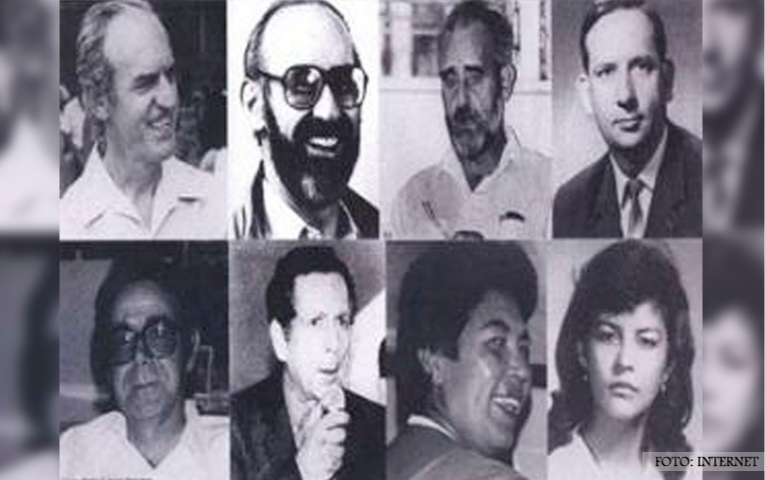
Demanding justice 35 years after the murder of six Jesuits in El Salvador
By María Josefina Arce
More than 75,000 people died or disappeared during the armed conflict in El Salvador from 1980 to 1992. The army and the so-called death squads, created to persecute and exterminate political opponents, were responsible for numerous crimes that shocked Salvadoran society.
This is the case of the 1989 massacre of six Jesuits, five of them Spaniards, and two women on the campus of the Central American University, whose leaders have not been brought to justice.
Now an investigative court in the Central American country has decided to put on trial, without setting a date, 11 people implicated in the murder, after a preliminary hearing to decide whether to proceed to that stage.
The Public Prosecutor's Office had indicated that it had sufficient evidence to try the defendants for the crimes of murder, terrorist acts, conspiracy to commit terrorist acts, procedural fraud and concealment.
One of the main absentees from the trial is former President Alfredo Cristiani, who governed El Salvador from 1989 to 1994 under the right-wing ARENA, Alianza Republicana Nacionalista, and who has had a warrant out for his arrest since 2022, when the case was reopened.
According to the Attorney General's Office, several witnesses place Cristiani at the meeting where the decision to kill the Jesuits was made.
In 1991, a Salvadoran court sentenced Colonel Guillermo Benavides, considered the commander of the group responsible for the murder of the six Jesuits and the two women who worked at the Central American University, to 30 years in prison.
However, two years later he was pardoned and released after the approval of an amnesty law under Cristiani's presidency, which for more than two decades prevented the prosecution of those implicated in crimes against humanity.
In 2016, the Supreme Court declared the controversial law unconstitutional. Benavides was sent back to prison and the case was reopened a year later, but it has not been without its pitfalls, having been closed and reopened several times.
Salvadoran society is waiting for justice for the atrocities committed during the armed conflict by the army and the death squads, which were financed and trained in counterinsurgency by the United States.

